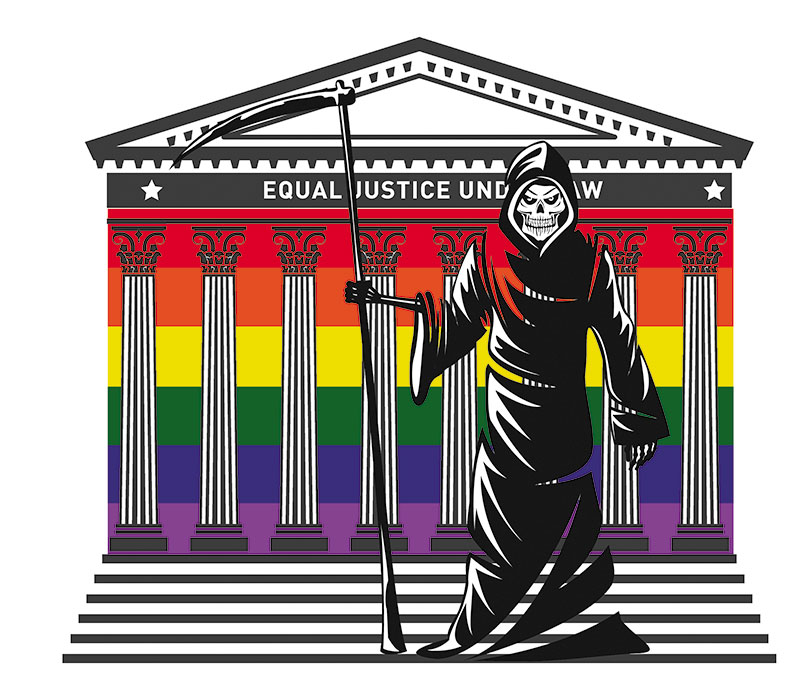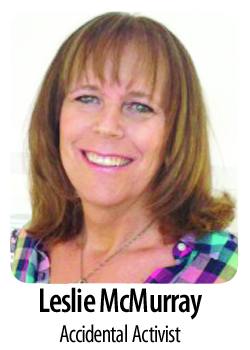
Courts and legislatures must act to protect LGBTQ people from discrimination in healthcare and everywhere
 As the insurance assistance coordinator at Resource Center, the primary LGBTQ and HIV/AIDS service organization in North Texas, I work with people trying to navigate the healthcare system without insurance as well as assisting low income clients with paying for their health insurance and medication co-pays.
As the insurance assistance coordinator at Resource Center, the primary LGBTQ and HIV/AIDS service organization in North Texas, I work with people trying to navigate the healthcare system without insurance as well as assisting low income clients with paying for their health insurance and medication co-pays.
It’s difficult and can be scary. Add a deadly virus, and it’s downright terrifying.
People are losing their jobs and have limited options to find care and get medication. HIV not only makes them more vulnerable to complications from COVID-19 but more likely to face discrimination in the health care system. LGBTQ Americans have historically faced barriers to health care because of unwelcoming attitudes at the doctor’s office and a lack of understanding from providers.
I know what that feels like. I came out as transgender nine years ago. Shortly after that, an LGBTQ newsletter did a feature story about me. Shortly after its publication, I was fired from my job and lost my healthcare. But I had nowhere to turn, because I live in Texas, a state without nondiscrimination protections. I had no protections federally either, because section 1557 of the ACA had not been added yet.
I quickly attempted to find private health insurance. But no one would insure me because I’m transgender. My applications for coverage were rejected. Being transgender was considered by Insurance companies to be a “pre-existing” condition.
My wife and I had to go without coverage and pay cash in emergencies. We didn’t go to the doctor if we got sick; we used the local urgent care as our primary care physician.
Discrimination can also make finding a job difficult. Texas is one of 27 states without comprehensive nondiscrimination protections for LGBTQ people. People can legally be denied a job because of who they are or who they love. They can be evicted for making someone uncomfortable. They can be fired if their identity is revealed.
They can be denied health care.
That’s why I hope the Supreme Court does the right thing on the three LGBTQ employment discrimination cases currently under review. The court has the opportunity to affirm that all LGBTQ people should be able to work hard and support themselves and their families without fear of harassment or discrimination at work.
And state legislatures need to do their part, too. Texas should pass comprehensive nondiscrimination protections so that no one is denied work, housing or the ability to see a doctor.
Doctors often turn transgender patients away because they aren’t trained in transgender health issues. The vast majority of doctors aren’t bad people, but the lack of protections allow well-intentioned doctors to say they can’t serve transgender people.
One of the most common questions I get at work from transgender people is whether I know a “transgender-friendly doctor.” There’s no reason why a doctor shouldn’t treat someone who is transgender. But discrimination in health care happens regularly, especially in more conservative or rural areas of the country.
I speak on transgender health care at area medical schools and hospitals. I hope that seeing someone who is transgender can help change hearts and minds. I share the story of Tyra Hunter, a transgender woman who died because of indifference and cruelty from first responders and in the emergency room.
I feel fortunate that I was eventually able to find a job with health insurance. I’m happy to be able to help others find the limited support available to keep them healthy. We’re all in this together. And now, more than ever, we must rely on each other and our communities.
We must ensure that LGBTQ people are protected from discrimination in all areas of life, including the doctor’s office. All Americans should be able to access the care they need, especially during this public health crisis. It’s a matter of life and death.
Leslie McMurray is the insurance assistance coordinator for the HIV/AIDS community at Resource Center in Dallas. She is also a regular columnist for Dallas Voice. Read more of her blogs at lesliemichelle44.wordpress.com.












❤️❤️